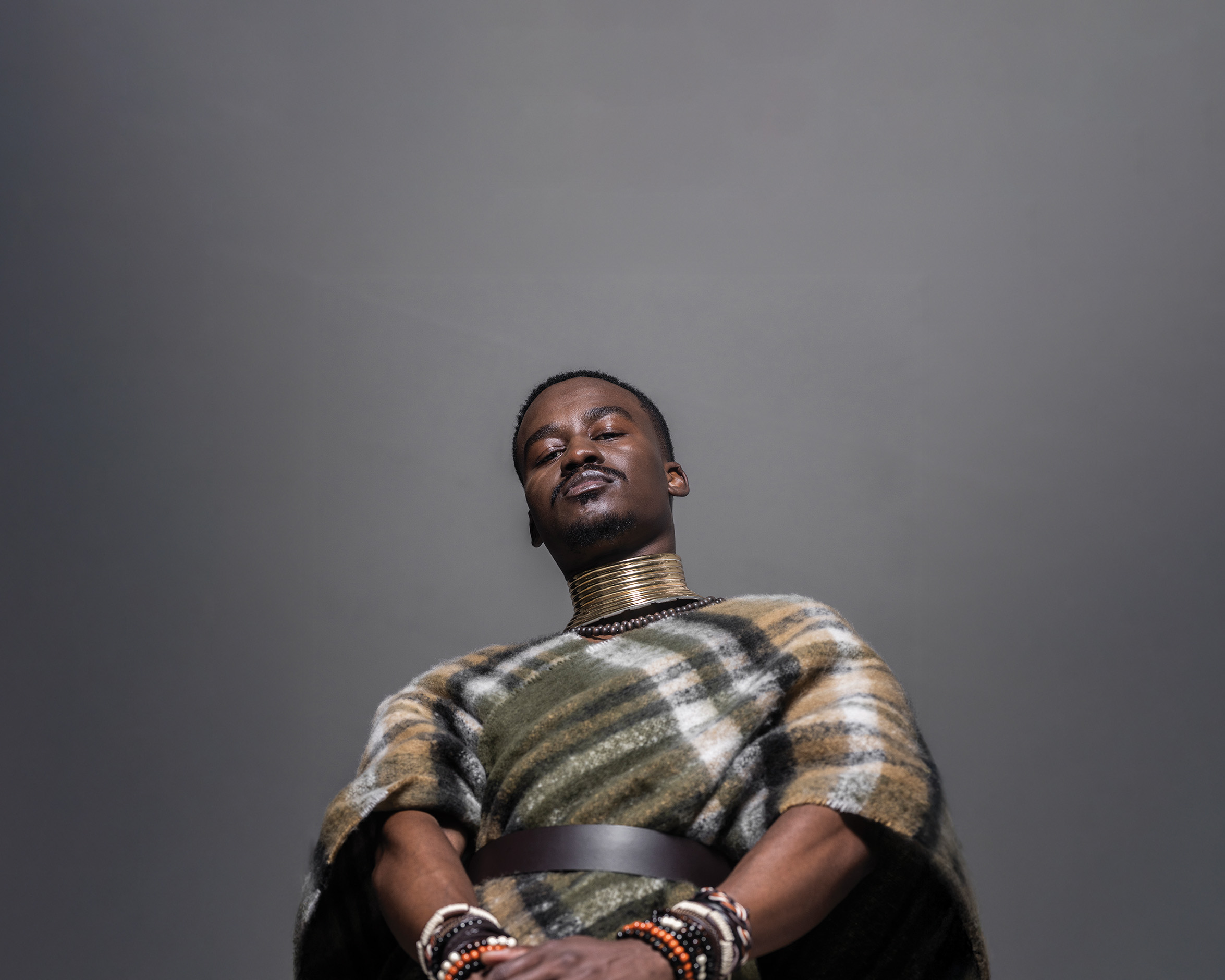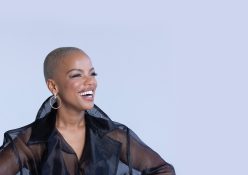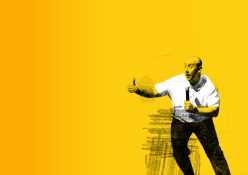From dance floors to drama, from stage to screen, Hungani Ndlovu isn’t here to fit the mould. He’s here to shatter it. And we’re here to watch it happen.
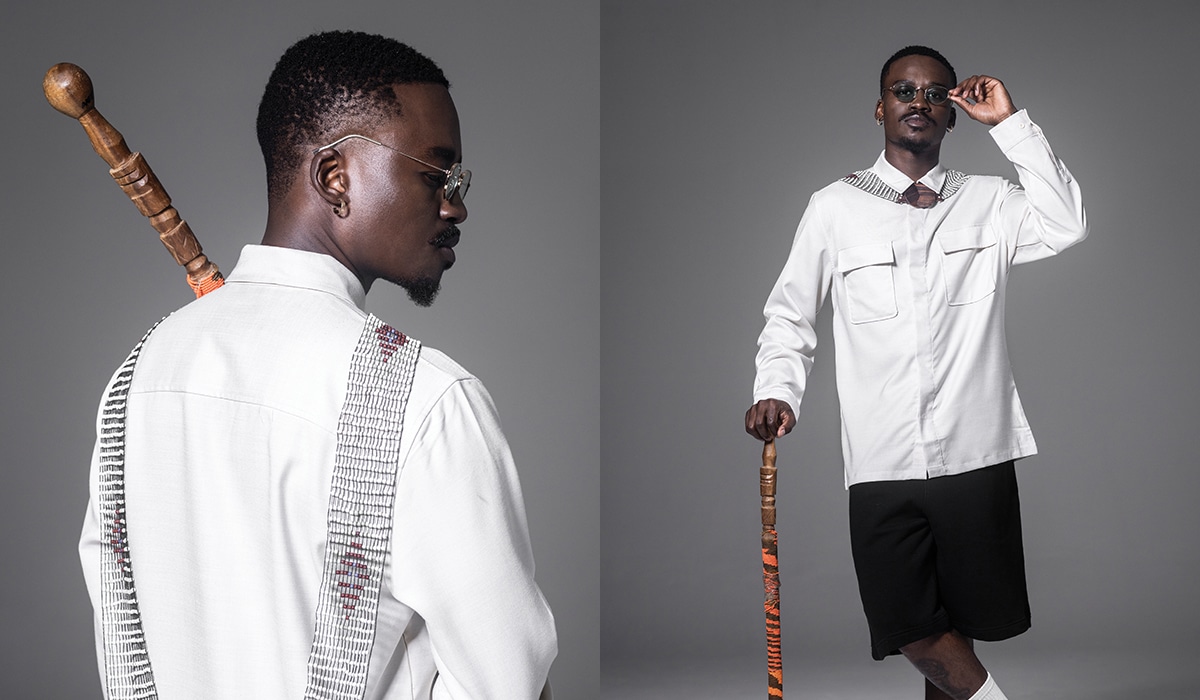
We’ve seen him act. We’ve seen him dance. We’ve cried, laughed and celebrated with his characters on screen. We’ve seen him charm his audience with nothing but a raised eyebrow and a disarming smile. But away from the spotlight he is something else entirely. Something rue. He is simply Hungani Ndlovu. He’s not interested in being anyone besides his authentic self.
The man in front of our camera today is far from the shy boy who grew up in Nelspruit, Mpumalanga. This is someone who has shed the layers of expectation, pressure and performance to figure out who he is without the spotlight. And what’s left is something rare and beautiful…
If you look closely, you’ll see a man rewriting the rules of hat masculinity looks like. It’s a masculinity that’s vulnerable without weakness and soft without apology. It holds space, asks questions and isn’t afraid to speak up. It’s a kind of masculinity hat knows that being a better man is about introspection and is a constant work in progress.
Watching him work is to witness a maestro in his element, man who’s both in control and completely at ease. And maybe that’s the point: he’s not here to impress, he’s here to be true.
His commitment to truth is especially striking now as he navigates a difficult chapter in his personal life. He recently announced his separation from his wife, Stephanie Ndlovu, after ix years of marriage, which has garnered much public attention. 3ut still, he remains grounded, choosing grace over spectacle.
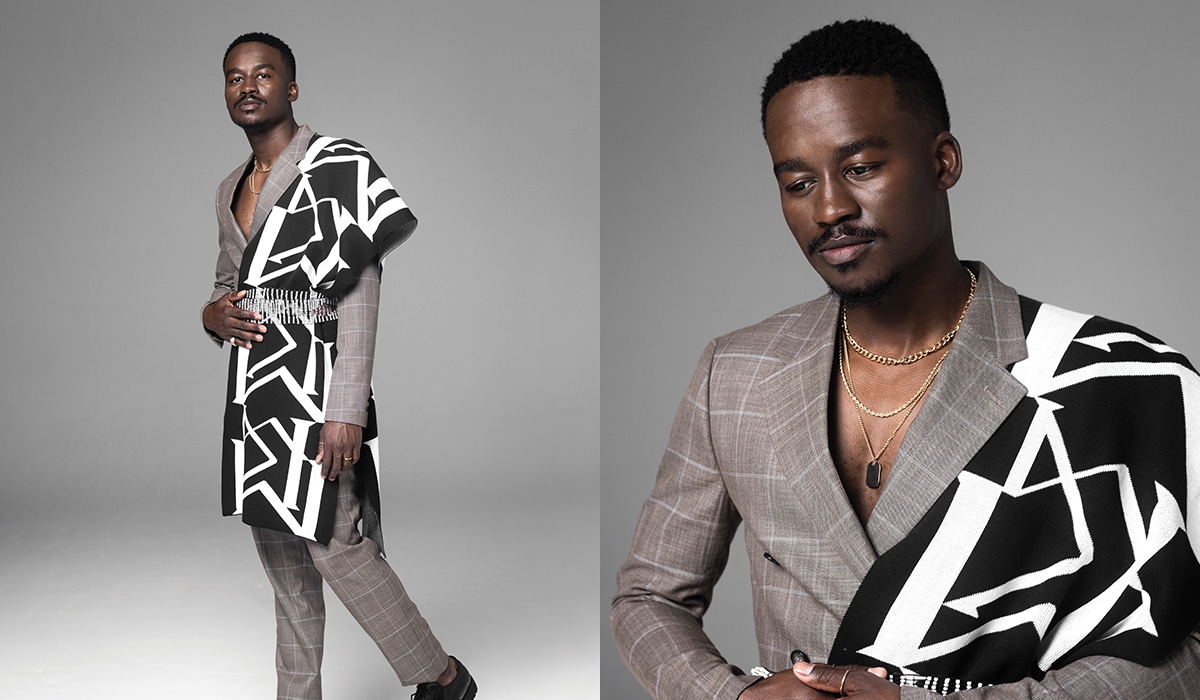
The journey so far
Hungani’s story doesn’t begin in front of the cameras — it begins with dance. He first found his rhythm in dance studios before discovering his love of acting. After refining his craft at the New York Film Academy, earning a degree in acting for film, and honing his dance skills in Los Angeles, he returned home to African soil — to not only break into the industry but leave an indelible mark.
In 2016 he debuted on our TV screens as Romeo Medupe in Scandal! He didn’t just play a smooth-talking strategist; he also humanised him. Yes, there was mischief but there was also depth, conflict and heartbreak. His layered emotionality and undeniable screen presence captured the hearts of millions.
The impact of this role can be seen first-hand. Midway through our interview at a quiet café in Cape Town, the waitress couldn’t help but shyly ask if she could get a photo with “Romeo from Scandal!“. Hungani, humble as ever, simply smiled and obliged. No performance. Just quiet gratitude. It’s a small moment but it speaks volumes about him and the way his character has connected with his audience.
Since then, he’s made a habit of constantly challenging himself He dived headfirst into darker territory in the 2018 local indie film Sipho, where he tackled themes of trauma and masculinity with subtle force.
@officialhunganindlovu Just vibes nje✨🕺🏾🔥 DC: @Abisalom #vibes ♬ original sound – Hungani Ndlovu
In 2022 he co-produced and starred in the Joburg Theatre production of Kill Move Paradise. He played a character called Grif, an individual grappling with the concept of death, which is also something Hungani used to struggle with.
“Ever since the play, I’m no longer afraid of dying. And I think that has also allowed me to live my life a little more boldly than I did before, which I’m grateful for.’ Shifting gears, he has also featured in the Netflix film uThando Lwethu, playing Kags, a man in search of his father’s approval. Playing that role really showed me a different side of how certain people navigate life, when standing on their own two feet is not an option in their mind —because they don’t want to lose out on family inheritance or whatever the case might be, or because of a lack of certain values or not dealing with an absent father who is present in terms of being alive but is absent emotionally and psychologically, which then has its own ripple effects.”
He’s currently starring in the popular SABC series Skeem Saam, where he took over the character of Thabo Maputla, better known as Tbose. “I look at my career like a musician would, in the sense that I have ‘albums’, I have ‘EPs’, ‘mixtapes’ and ‘singles’. So doing stuff like Scandal! or Skeem Saam, long-form kind of stuff , those are albums — of course, you spend so much time there, and you grow with people there, people get to know you. But then you go off and do a commercial or a short film and that’s like a single. Then I’ll go and do a stage play and this is like an EP, because it’s raw and it’s real and it’s for a short while and then it’s gone.”
The grind never stops. Off-screen, in 2015 Hungani founded the SANS Group, now known as the Actors Playground, a studio aimed at bridging the gap for actors and dancers struggling to enter the local industry. He also recently founded the Hungani Ndlovu Foundation, which focuses on youth development and mental health. Added to this advocacy work is the role he plays in the NGO MatrixMen, which supports male victims of abuse. He clearly isn’t just playing roles. He’s changing narratives.
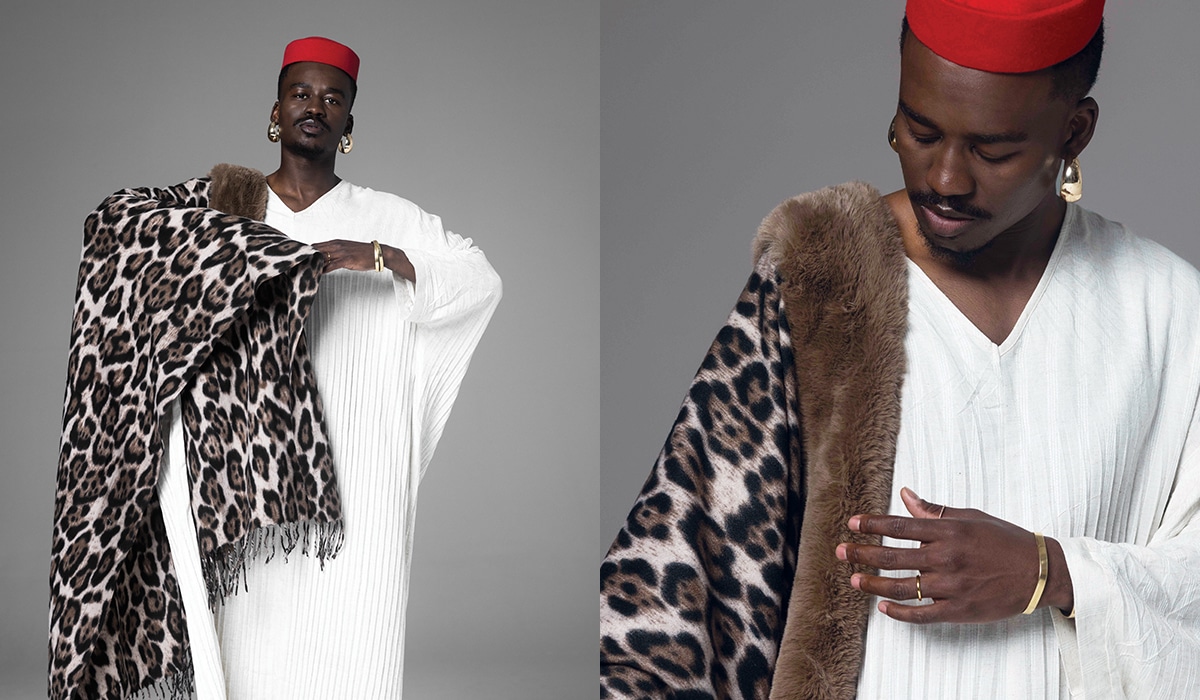
Breaking the silence
Hungani’s drive for purpose over performance can clearly be seen in his work with MatrixMen, which is dedicated to highlighting the conversation around men’s mental health. Through MatrixMen he has helped open doors to conversations about trauma, shame and the weight of unspoken accountability that so many men feel and deal with in silence.
He has openly spoken about surviving domestic violence, not to garner sympathy but to help dismantle the stigma that surrounds male survivors.
“When I was younger, I was in a relationship that went from good to bad:” he says. “It became very toxic. I was with someone who was emotionally and physically abusive.” It was this experience that changed the way he views the world in ways he’s still processing. “At the time, I experienced things that I never would have thought would happen to me. It made me appreciate life a little more because I’ve survived the very darkest things… things that I would never wish for somebody else to experience.
@officialhunganindlovu Just vibes nje✨🕺🏾🔥 DC: @Abisalom #vibes ♬ original sound – Hungani Ndlovu
“He goes on to share a moment that left a lasting impression. “She would hit me while walking in the streets;’ he says. “No one would pay any attention. And I knew that if the roles were reversed, that would be a very different story.”
It was this juxtaposition between societal perception and personal experience that deepened his sense of urgency to advocate for male survivors of domestic abuse.
Hungani shares that he believes that the root of the problem begins early. “We have gender-based violence in South Africa because young boys aren’t getting the help that they need in their early formative years. There’s no system in place to help the boy mthat is abused when he’s still a boy.”
Despite this, Hungani sees hope in the future generation. “We’re seeing fathers in today’s world who are a lot more present than before, who are a lot more involved than before. It takes a certain level of self-awareness to recognise what that means and what that does for a child.
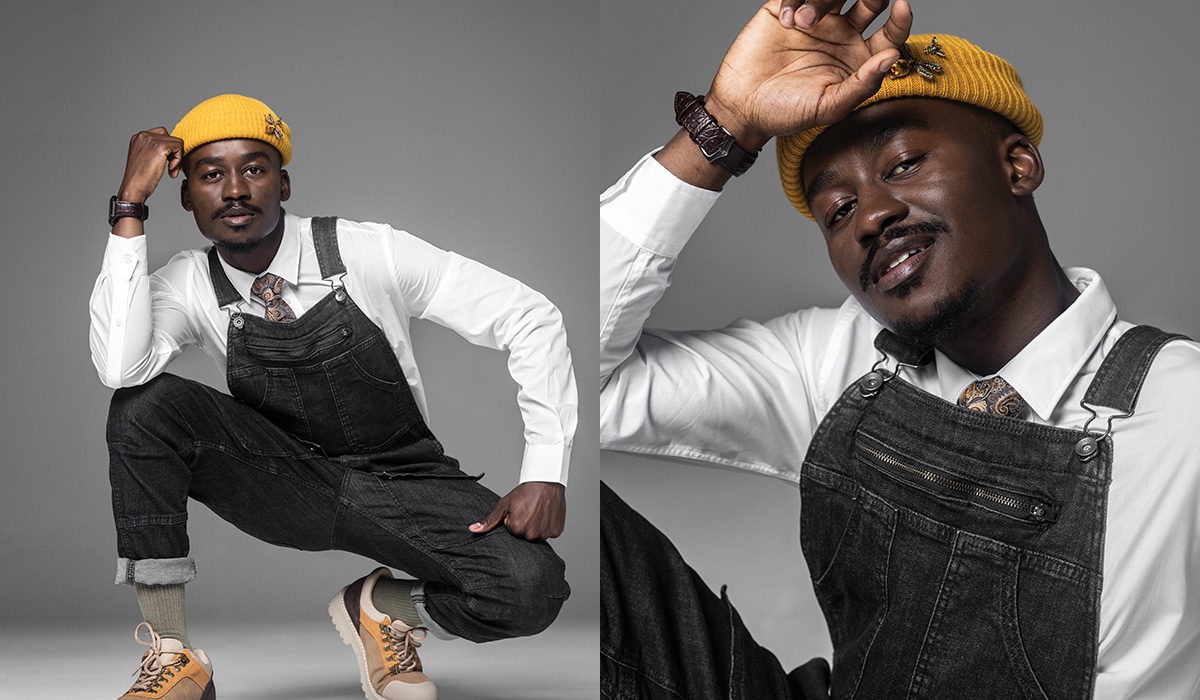
“To be able to reflect and say: ‘Oh, man, I wish I could have had that.’ Which then inspires them to raise their own children better. That’s how we change and how we evolve. We just have to be better than the generation that raised us.”
His advocacy, at its core, is about helping men shed the shackles of performed masculinity and rather embrace something a little more true and a lot more honest.
One thing you want to set the record straight about? “A lot of people think I’m Zulu because of my surname. But I’d like to make it known that I am Tsonga. I also don’t have an American accent in real life — only when I played Romeo in Scandal !”
“My understanding of masculinity has gotten more and more confusing over the years,” he admits. “It’s hard to find an example of what masculinity is without talking about toxic masculinity. But I find that problematic because if we’re going to explain something, we shouldn’t have to explain it by talking about its opposite. I would shift the conversation and ask ‘What is positive masculinity?’ instead.”
Hungani doesn’t hesitate to describe what masculinity looks like for him. “For a very long time, masculinity has been associated with gender roles,” he says, “and now that’s changed. All I know is I’m a man, and my masculinity is founded in who I am. I live life wanting to do good, not only for myself, but for my family and those around me. I’m kind and generous, loving and vulnerable. I cry, I’m sensitive, my emotions are on my sleeve – all of the above. And I feel I am the most masculine in who I am.”
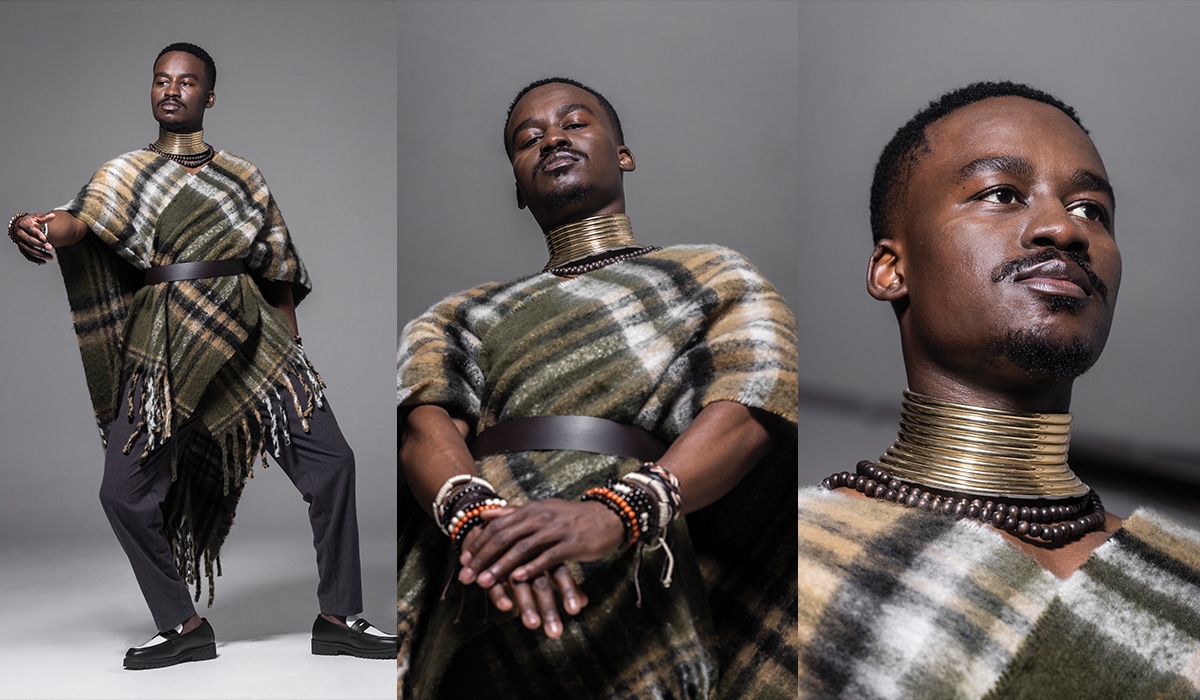
Fun Facts
Full name: Hungani Malcolm Ndlovu
DOB: 19 June 1994 (31 years old)
Favourite takeout: Pizza.
Favourite holiday destination: Zanzibar or Tanzania.
Dream holiday destination: Bora Bora or the Maldives.
Favourite snack: Yoghurt Jungle Oats bar.
Quotes to live by: “Change is the only constant” and “Do your best. God will do the rest.”
One thing you want to set the record straight about? “A lot of people think I’m Zulu because of my surname. But I’d like to make it known that I am Tsonga. I also don’t have an American accent in real life – only when I played Romeo in Scandal!
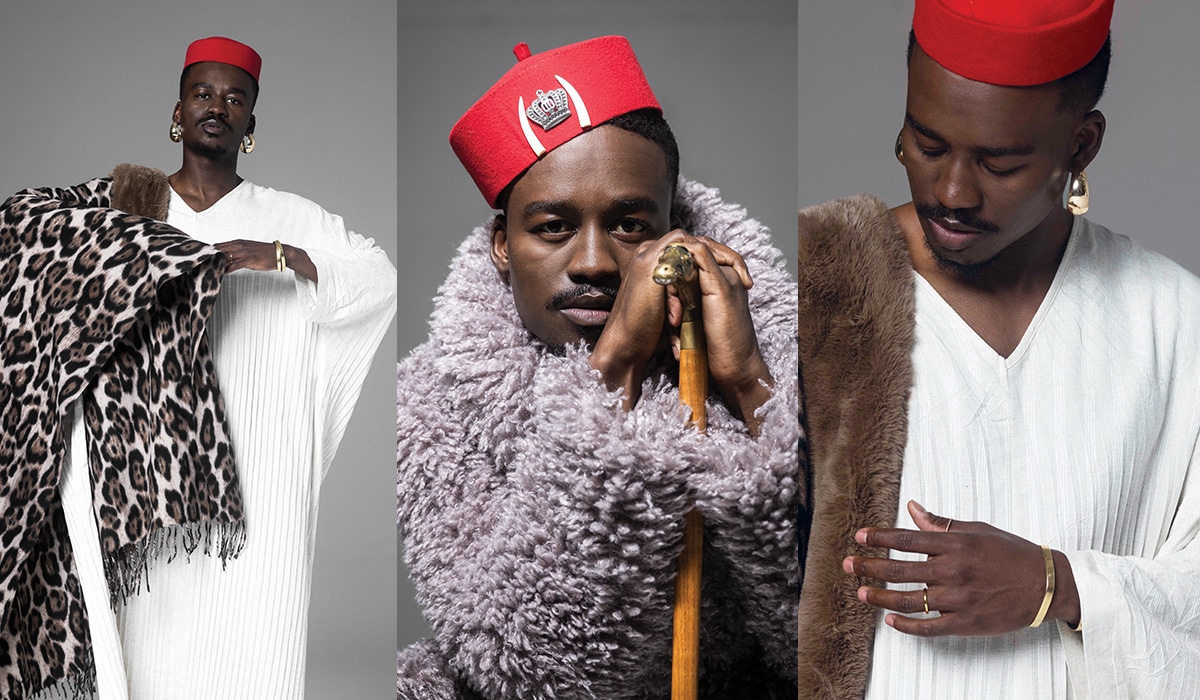
Follow Him
Facebook: Hungani Ndlovu
Instagram: @hunganindlovu
TikTok: @officialhunganindlovu
By: Rughsaar Bibi Ismail
Photography by: Zhann Solomons
Text courtesy of Man magazine
Also read: Kim Jayde is back & bolder than ever



